

A hero (masculine) or heroine (feminine) is a real person or a main character of a literary work who, in the face of danger, combats adversity through feats of ingenuity, bravery or strength; the original hero type of classical epics did such things for the sake of glory and honor. On the hand are Medieval and modern heroes, who perform great deeds for the common good instead of the classical goal of pride and fame.
The concept of the hero can be found in classical literature. It is the main or revered character in heroic epic poetry celebrated through ancient legends of a people, often striving for military conquest and living by a continually flawed personal honor code. The definition of a hero has changed throughout time. Merriam Webster dictionary defines a hero as "a person who is admired for great or brave acts or fine qualities." Examples of heroes range from mythological figures, such as Gilgamesh, Achilles and Iphigenia, to historical figures, such as Joan of Arc, modern heroes like Alvin York, Audie Murphy and Chuck Yeager, and fictional superheroes, including Superman and Batman.
Contents
Etymology
The word hero comes from the Greek ???? (h?r?s), "hero" (literally "protector" or "defender"), particularly one such as Heracles with divine ancestry or later given divine honors. Before the decipherment of Linear B the original form of the word was assumed to be *????-, h?r?w-, but the Mycenaean compound ti-ri-se-ro-e demonstrates the absence of -w-.
According to the American Heritage Dictionary of the English Language, the Proto-Indo-European root is *ser meaning "to protect". According to Eric Partridge in Origins, the Greek word H?r?s "is akin to" the Latin seru?re, meaning to safeguard. Partridge concludes, "The basic sense of both Hera and hero would therefore be 'protector'." R. S. P. Beekes rejects an Indo-European derivation and asserts that the word has a Pre-Greek origin.
Antiquity
A classical hero is considered to be a "warrior who lives and dies in the pursuit of honor" and asserts their greatness by "the brilliancy and efficiency with which they kill". Each classical hero's life focuses on fighting, which occurs in war or during an epic quest. Classical heroes are commonly semi-divine and extraordinarily gifted, like Achilles, evolving into heroic characters through their perilous circumstances. While these heroes are incredibly resourceful and skilled, they are often foolhardy, court disaster, risk their followers' lives for trivial matters, and behave arrogantly in a childlike manner. During classical times, people regarded heroes with the highest esteem and utmost importance, explaining their prominence within epic literature. The appearance of these mortal figures marks a revolution of audiences and writers turning away from immortal gods to mortal mankind, whose heroic moments of glory survive in the memory of their descendants, extending their legacy.
Hector was a Trojan prince and the greatest fighter for Troy in the Trojan War, which is known primarily through Homer's The Iliad. Hector acted as leader of the Trojans and their allies in the defense of Troy, "killing 31,000 Greek fighters," offers Hyginus. Hector was known not only for his courage but also for his noble and courtly nature. Indeed, Homer places Hector as peace-loving, thoughtful as well as bold, a good son, husband and father, and without darker motives. However, his familial values conflict greatly with his heroic aspirations in The Iliad, as he cannot be both the protector of Troy and a father to his child. Hector is ultimately betrayed by the gods when Athena appears disguised as his ally Deiphobus and convinces him to take on Achilles, leading to his death at the hands of a superior warrior.
Achilles was a Greek Hero who was considered the most formidable military fighter in the entire Trojan War and the central character of The Iliad. He was the child of Thetis and Peleus, making him a demi-god. He wielded superhuman strength on the battlefield and was blessed with a close relationship to the Gods. Achilles famously refuses to fight after his dishonoring at the hands of Agamemnon, and only returns to the war due to unadulterated rage after Hector kills his close friend Patroclus. Achilles was known for uncontrollable rage that defined many of his bloodthirsty actions, such as defiling Hector's corpse by dragging it around the city of Troy. Achilles plays a tragic role in The Iliad brought about by constant de-humanization throughout the epic, having his menis (wrath) overpower his philos (love).
Heroes in myth often had close but conflicted relationships with the gods. Thus Heracles's name means "the glory of Hera", even though he was tormented all his life by Hera, the Queen of the Gods. Perhaps the most striking example is the Athenian king Erechtheus, whom Poseidon killed for choosing Athena over him as the city's patron god. When the Athenians worshiped Erechtheus on the Acropolis, they invoked him as Poseidon Erechtheus.
Fate, or destiny, plays a massive role in the stories of classical heroes. The classical hero's heroic significance stems from battlefield conquests, an inherently dangerous action. The gods in Greek Mythology, when interacting with the heroes, often foreshadow the hero's eventual death on the battlefield. Countless heroes and gods go to great lengths to alter their pre-destined fate, but with no success, as no immortal can change their prescribed outcomes by the three Fates. The most prominent example of this is found in Oedipus Rex. After learning that his son, Oedipus, will end up killing him, the King of Thebes, Laius, takes huge steps to assure his son's death by removing him from the kingdom. But, Oedipus slays his father without an afterthought when he unknowingly encounters him in a dispute on the road many years later. The lack of recognition enabled Oedipus to slay his father, ironically further binding his father to his fate.
Stories of heroism may serve as moral examples. However, classical heroes often didn't embody the Christian notion of an upstanding, perfectly moral hero. For example, Achilles's character-issues of hateful rage lead to merciless slaughter and his overwhelming pride lead to him only joining the Trojan War because he didn't want his soldiers to win all of the glory. Classical heroes, regardless of their morality, were placed in religion. In classical antiquity, cults that venerated deified heroes such as Heracles, Perseus, and Achilles played an important role in Ancient Greek religion. These ancient Greek hero cults worshipped heroes from oral epic tradition, with these heroes often bestowing blessings, especially healing ones, on individuals.
Myth and monomyth
The concept of the "Mythic Hero Archetype" was first developed by Lord Raglan in his 1936 book, The Hero, A Study in Tradition, Myth and Drama. It is a set of 22 common traits that he said were shared by many heroes in various cultures, myths and religions throughout history and around the world. Raglan argued that the higher the score, the more likely the figure is mythical.
The concept of a story archetype of the standard monomythical "hero's quest" that was reputed to be pervasive across all cultures is somewhat controversial. Expounded mainly by Joseph Campbell in his 1949 work The Hero with a Thousand Faces, it illustrates several uniting themes of hero stories that hold similar ideas of what a hero represents, despite vastly different cultures and beliefs. The monomyth or Hero's Journey consists of three separate stages including the Departure, Initiation, and Return. Within these stages there are several archetypes that the hero or heroine may follow including the call to adventure (which they may initially refuse), supernatural aid, proceeding down a road of trials, achieving a realization about themselves (or an apotheosis), and attaining the freedom to live through their quest or journey. Campbell offered examples of stories with similar themes such as Krishna, Buddha, Apollonius of Tyana, and Jesus. One of the themes he explores is the androgynous hero, who combines male and female traits, like Bodhisattva: "The first wonder to be noted here is the androgynous character of the Bodhisattva: masculine Avalokiteshvara, feminine Kwan Yin." In his 1968 book, The Masks of God: Occidental Mythology, Campbell writes "It is clear that, whether accurate or not as to biographical detail, the moving legend of the Crucified and Risen Christ was fit to bring a new warmth, immediacy, and humanity, to the old motifs of the beloved Tammuz, Adonis, and Osiris cycles."[15]
Slavic fairy tales
Vladimir Propp, in his analysis of the Russian fairy tale, concluded that a fairy tale had only eight dramatis personæ, of which one was the hero,[16]:p. 80 and his analysis has been widely applied to non-Russian folklore. The actions that fall into such a hero's sphere include:
Propp distinguished between seekers and victim-heroes. A villain could initiate the issue by kidnapping the hero or driving him out; these were victim-heroes. On the other hand, an antagonist could rob the hero, or kidnap someone close to him, or, without the villain's intervention, the hero could realize that he lacked something and set out to find it; these heroes are seekers. Victims may appear in tales with seeker heroes, but the tale does not follow them both.[16]:36
Historical studies
No history can be written without consideration of the lengthy list of recipients of national medals for bravery, populated by firefighters, policemen and policewomen, ambulance medics and ordinary have-a-go heroes.[17] These persons risked their lives to try to save or protect the lives of others: for example, the Canadian Cross of Valour (C.V.) "recognizes acts of the most conspicuous courage in circumstances of extreme peril";[18] examples of recipients are Mary Dohey an
Watch movie Heroine online on Amazon
Up to 70% discount on Mobile and laptop for today : Buy now

Up to 80% discount on Pampers diapers other baby product : Buy now 

Stream Movie Now
Watch movie Heroine online
Watch The Movie On PrimeDil (1990) Full HD Movie Download
.jpg)
Shirdi Sai Baba Full HD Movie Download

Sapoot Full HD Movie Download

Zindagani Full HD Movie Download
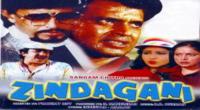
Gharana (1989) Full HD Movie Download
.jpg)
Bhairavi (1996) Full HD Movie Download
.jpg)
Manoranjan (1974) Full HD Movie Download
.jpg)
Pudhu Pudhu Arthangal Full HD Movie Download

Bhayanak Bhutani Full HD Movie Download
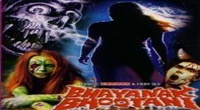
Kalachakram (1980) Full HD Movie Download
.jpg)
Penmani Aval Kanmani Full HD Movie Download
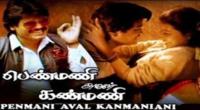
Santan (1976) Full HD Movie Download
.jpg)
Seetharamakalyanam Full HD Movie Download
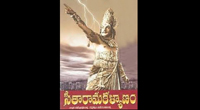
Desh Re Joya Dada Pardesh Joya Full HD Movie Download

Indra Dhanush Full HD Movie Download

Soggadi Pellam Full HD Movie Download

Sex and the City Full HD Movie Download

Adikkurippu Full HD Movie Download

Delhi Simham Full HD Movie Download

Maavuri Kittayya Full HD Movie Download

Band Baaja Baaraat Full HD Movie Download
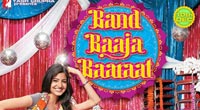
Download latest Movie from bollywood
- 1> baaghi 3
- 2> THE SKY IS PINK MOVIE FULL STORY AND REVIEW
- 3> Luka Chuppi
- 4> TO ALL THE BOYS I’VE LOVED BEFORE
- 5> Kabir Singh
- 6> Street Dancer 3D
- 7> Simmba
- 8> Gone Girl
- 9> The Girl Who Lived
- 10> Ludo
- 11> DILWALE DULHANIA LE JAYENGE
- 12> GUILTY
- 13> The Godfather
- 14> Adventures of Rusty
- 15> Sooryavanshi
- 16> Satyameva Jayate 2
- 17> Thappad
- 18> Bhool Bhulaiyaa 2
- 19> KGFChapter 2
- 20> Mardaani 2
- 21> Pinjar
- 22> Shivaji maharaj
- 23> Ek Villian 2
- 24> Hungama 2
- 25> Divergent
- 26> Mumbai Saga
- 27> The Internship
- 28> HIT (telugu)
- 29> Panga
- 30> The perfect date
- 31> 16 December
- 32> Gopala Gopala (Telugu)
- 33> Brahmastra
- 34> Gangubai Kathiawadi
- 35> Manmadhudu
- 36> Nenu local
- 37> Mahanati
- 38> Shatamanam bavathi
- 39> Lagaan
- 40> After
- 41> MOM
- 42> Shamshera
- 43> Raguvaran BTech
- 44> Khakee
- 45> The villain
- 46> OM
- 47> Mr. perfect
- 48> Bueatifull mind
- 49> Hichki
- 50> Gabbar Singh
- 51> Jogi
- 52> Before Sunrise
- 53> Before Sunset
- 54> Before Midnight
- 55> The Big Bull
- 56> Top Gun: Maverick
- 57> The Purge
- 58> The Sky is Pink
- 59> Laxmmi Bomb
- 60> Sadak 2
- 61> Sufna
- 62> Prithviraj
- 63> PK
- 64> Coolie No 1(2020)
- 65> Black Widow
- 66> Dear Zindagi
- 67> Dil Bechara
- 68> PHIR HERA PHERI
- 69> WAR
- 70> Dostana
- 71> RRR: Roudram Ranam Rudhiram
- 72> Maidan
- 73> Dabbang 3
- 74> Chhalaang
- 75> life as we know it
- 76> SherShaah
- 77> Sandeep Aur Pinky Faraar
- 78> Event Horizon
- 79> 83
- 80> Radhe: Your Most Wanted Bhai
- 81> Gunjan Saxena: The Kargil Girl
- 82> Mr India
- 83> Vivah
- 84> Anokha Bandhan
- 85> Ghost
- 86> Bhoot: Part One - The Haunted Ship
- 87> Haseen Dilruba
- 88> Laal Singh Chaddha
- 89> Qismat
- 90> Rajput
- 91> Drive
- 92> Dil Chahta Hai
- 93> Dil Ki Baazi
- 94> Dil Ka Rishta
- 95> Teesri Manzil
- 96> Dil
- 97> Love Aaj Kal
- 98> Khaali Peeli
- 99> Bunty Aur Babli 2
- 100> Atrangi Re
- 101> Gulabo Sitabo
- 102> Jodi
- 103> Suraj Pe Mangal Bhari
- 104> Deewana
- 105> Attack
- 106> Sardar Udham Singh
- 107> Toofan
- 108> THE LOVEBIRDS
- 109> Jersey
- 110> Ginny Weds Sunny
- 111> Thalaivi
- 112> Shiddat
- 113> Angels vs Zombies
- 114> Koi Mil Gya
- 115> Thank God
- 116> Bhuj: The Pride of India
- 117> Hum Aapke Hain Kaun
- 118> The Platform
- 119> Bird Box
- 120> Roohi Afzana
- 121> Torbaaz
- 122> Nikamma
- 123> World War Z
- 124> Extraction
- 125> Train to Busan
- 126> Life of Pi
- 127> SHAADI MEIN JROOR AANA
- 128> Himmat Aur Mehnat
- 129> To All The Boys: P.S. I Still Love You
- 130> Mimi
- 131> Good Newwz
- 132> Shubh Mangal Zyada Saavdhan
- 133> Raabta
- 134> Harry Potter and the Philosopher's Stone
- 135> Harry Potter and the Chamber of Secrets
- 136> Chhapaak
- 137> War of the Worlds
- 138> Harry Potter and the Prisoner of Azkaban
- 139> Harry Potter and the Goblet of Fire
- 140> MURDER MYSTERY
- 141> Shakuntala Devi
- 142> Bachchan Pandey
- 143> Jayeshbhai Jordar
- 144> Sheer Qorma
- 145> Saina
- 146> 'O' Pushpa I hate tears
- 147> Kedarnath
- 148> MS Dhoni The Untold Story
- 149> Chhichhore
- 150> Badhaai Ho
- 151> Unstoppable
- 152> Oz the Great And Powerful
- 153> The Girl on the Train
- 154> Haathi Mere Saathi 2020
- 155> The Conjuring: The Devil Made Me Do It
- 156> Gandhi Se Pehle Gandhi
- 157> The Song of Scorpions
- 158> Srimanthudu
- 159> Hello Guru Prema Kosame
- 160> Beauty and The Beast
- 161> Black Panther
- 162> Charlie and the Chocolate Factory
- 163> Bole Chudiyan
- 164> Fidaa
- 165> Duvvada Jagannadham
- 166> Bruce Lee: The Fighter
- 167> Hyper
- 168> Yaara
- 169> Red (2020)
- 170> Shivam
- 171> That Is Mahalakshmi
- 172> Nishabdham
- 173> Aashram 2020 web series
- 174> Laxmii
- 175> Mismatched
- 176> STUDENT OF THE YEAR 2
- 177> NAIL POLISH
- 178> Ramprasad Ki Tehrvi
- 179> KAAGAZ
- 180> 12 o Clock
- 181> The Power
- 182> bolo hau
- 183> Tribhanga
- 184> JAMUN
- 185> Madam Chief Minister
- 186> Maasaab
- 187> Aadhaar
- 188> Tanhaji
- 189> Bhaagi 3
- 190> Bhootnath
- 191> MALANG
- 192> Jai Mummy Di
- 193> Haathi Mere Saathi 2021
- 194> Shakeela
- 195> Unpaused
- 196> Annayya
- 197> Vamsoddharakudu
- 198> Mrugaraju
- 199> Narasimha Naidu
- 200> Sankranti
- 201> Manasu Maata Vinadhu
- 202> Anjaane
- 203> Apaharan
- 204> Bachke Rehna Re Baba
- 205> Bewafaa
- 206> Roohi
- 207> Radhe
- 208> Zindagi Khoobsoorat Hai
- 209> Yeh Mohabbat Hai
- 210> Yeh Kya Ho Raha Hai?
- 211> The Tomorrow War
- 212> DehradunDiary
- 213> Meri Shaadi Karaoo
- 214> Matruu Ki Bijlee Ka Mandola
- 215> No One Killed Jesica
- 216> Aag Ka Goola
- 217> Eight Million Dollars
- 218> Three Hundred
- 219> Cats and Dog
- 220> Decoy
- 221> Gold Rush
- 222> You Have Got Mail
- 223> Final Destination three
- 224> Tofan
- 225> Jungle




